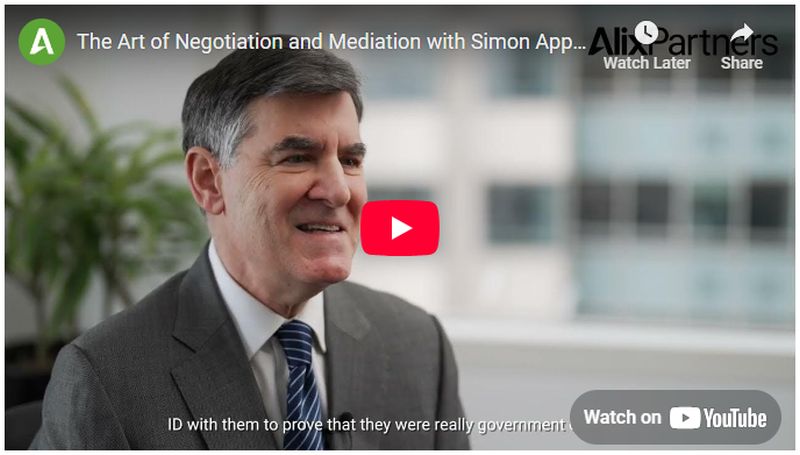- within Antitrust/Competition Law, Intellectual Property and Real Estate and Construction topic(s)
- with readers working within the Retail & Leisure industries
It is clear to see why many organizations find themselves at a crossroads. The current environment is once again marked by profound uncertainty, as global supply chain disruptions, geopolitical tensions, and evolving international trade policies create significant barriers for businesses trying to stay afloat.
In these moments–when the stakes are highest–the ability to manage competing interests and align stakeholders at pace becomes critical. Having spent years guiding businesses through complex restructurings, I've seen firsthand how deliberate communication and strategic agility can transform the most challenging of situations into pathways for recovery.
A commitment to building and maintaining trust sits at the heart of any successful turnaround. When a business becomes distressed, communication is arguably the most powerful instrument a leadership team can wield. Transparent and proactive dialogue with financial stakeholders, their advisors, regulators, key customers and suppliers, and employees can help foster alignment—even when priorities may differ. Relationships anchored in mutual
understanding stand a far better chance of weathering opposition or gridlock during negotiations.
Of course, none of this exists in a vacuum. Effective regulatory navigation requires technical expertise and a nuanced understanding of the playing field. As many jurisdictions introduce or tighten trade, financial, labor, and other measures, businesses need forward-looking strategies that offer near-term solutions, while anticipating future challenges in lockstep with regulators' evolving expectations.
These headwinds also create opportunities—the chance to rethink how businesses engage with their key stakeholders, and to design more resilient strategies for the road ahead.
In our role as global turnaround and restructuring advisors, we have brought multiple competencies to the table for decades. We act as strategists, helping leadership teams evaluate their options and determine which align with the long-term health of their business. We serve as communicators and coordinators, uniting stakeholders around common goals, mediating between groups to improve the likelihood of securing favorable outcomes. Finally—and crucially—we act on these plans, fast.
The importance of agility cannot be overstated. Macroeconomic conditions are shifting with levels of volatility that punish rigidity. Take the evolving barriers to cross-border collaboration, for instance, which remains an absolute necessity in today's globalized economy. Managing these partnerships effectively requires alignment across legal frameworks, strategic objectives, and mindfulness of cultural contexts. Without a flexible, adaptive approach, businesses run the risk of being caught flat-footed when disruption changes tack once again.
Any road to recovery is rarely straight, often requiring maneuvers through uncharted regulatory and relational territory. Yet amid such pressurized situations lie the opportunities to emerge stronger, better prepared, and more unified. When businesses commit to the principles of trust, communication, agility, and collaboration they don't just survive distress. They establish the foundation for sustainable success. That, to me, is the true measure of positive action. These qualities are not optional; they are essential in today's volatile climate.
Read more insights from the 20th Annual Turnaround and Transformation Survey.
Watch Simon Appell's interview with U.S. diplomat Mitchell Reiss on the topic of negotiation and mediation:
The content of this article is intended to provide a general guide to the subject matter. Specialist advice should be sought about your specific circumstances.


